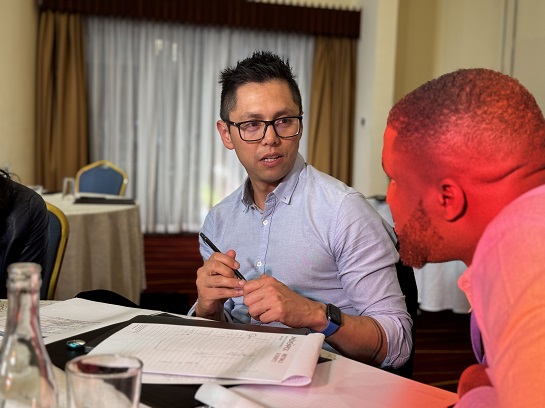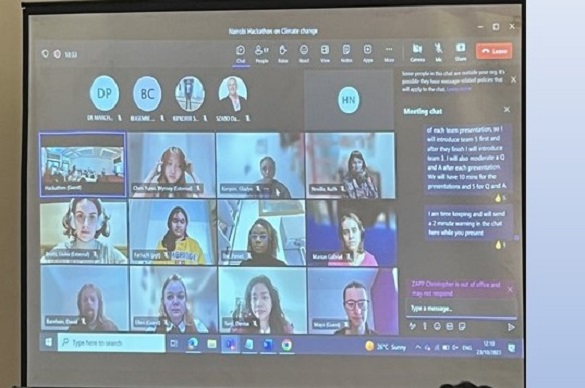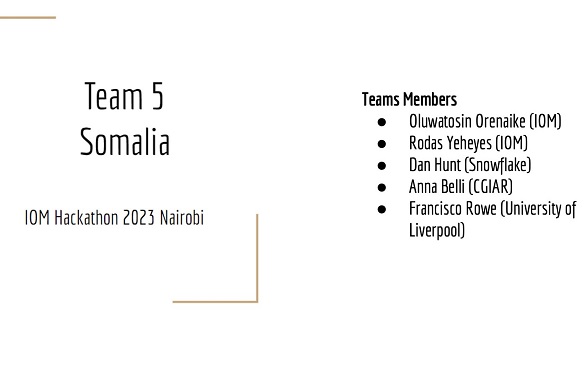COP 28: Staff and students contribute to UN climate and human mobility report
Published on

Staff and students from the University’s Department of Geography & Planning have contributed to a UN climate and human mobility report and exhibition that will launch at COP28.
Their contributions are the result of their participation in separate hackathons organised by the UN’s International Organization for Migration (IOM).
Liverpool students took part in a hackathon in London which brought together student teams from across the UK to address different research questions about the relationship between climate change and human mobility in the East and Horn of Africa region.
The competing teams presented their methods, analysis, and results to a panel of judges.
The Liverpool team of four students and two students from the London School of Economics scooped second place impressing the judges with their innovative network approach and extremely detailed analysis of the relevant historical, economic, and state political context.
As part of their prize, their findings were presented at a second IOM hackathon that took place in Kenya and will contribute to an IOM report on climate change and migration.
A second migration hackathon was held in Nairobi, Kenya and Professor Francisco Rowe and Dr Elisabetta Pietrostefani from the University’s Geographic Data Science Lab participated as invited experts in the event.

The event brought together 50 experts in human mobility, climate, ecology, public policy and data science from various sectors and countries to tackle pressing questions on climate-induced human mobility and migration in the East and Horn of Africa region.
Experts were organised into teams to explore the feasibility of modelling the links between different drivers of mobility in the region and identify the relative importance of environmental factors. In addition, participants explored the use of new technologies, including telecom data and machine learning for analysing migration flows and identifying new statistical indicators.

The findings from both the Liverpool student team and from the Nairobi event will inform an IOM report and presentation on climate and human mobility that will be delivered at the 28th United Nations Climate Change conference (COP28) which launches this week.
A video has also been produced and will be played at the IOM pavilion in the exhibition space during COP28 and a medium article has also been published.
Professor Rowe, who specialises in population data science with specific expertise in human mobility, migration and geographic data science, said: “I was delighted that our student team came second in the first part of this hackathon which gave them the opportunity to apply their knowledge, technical skills and critical thinking to investigate the relationship between climate change and human mobility.”
“It was an honour to participate in the expert hackathon in Nairobi and work with different experts to explore how we can use data insights to better understand the impact of climate change on migration.”
“The IOM’s hackathons are a fantastic vehicle to explore the impact of climate change on migration trends. It is only through working together that we will make an impact.”
The two hackathons were hosted by the International Organization for Migration (IOM) in collaboration with the Data Cloud company, Snowflake.